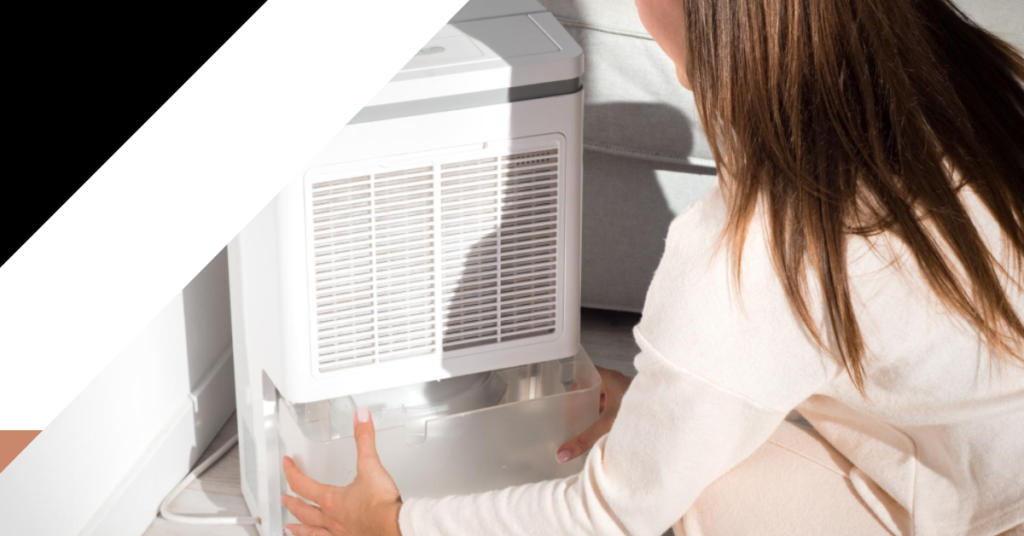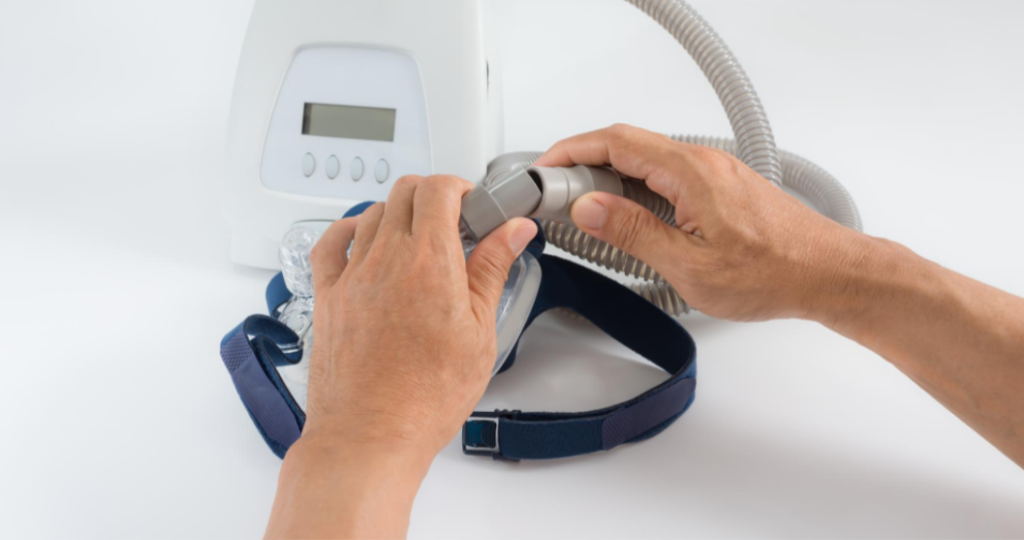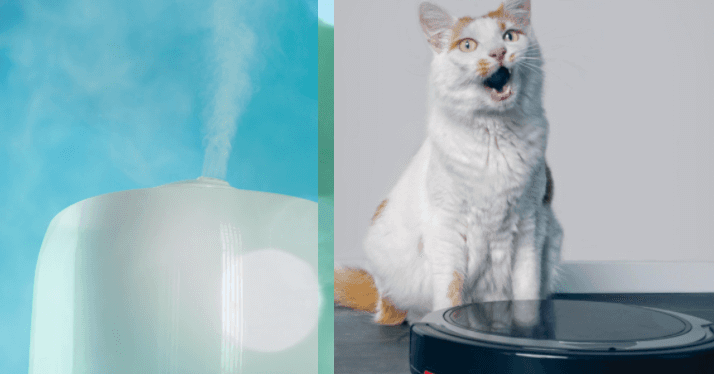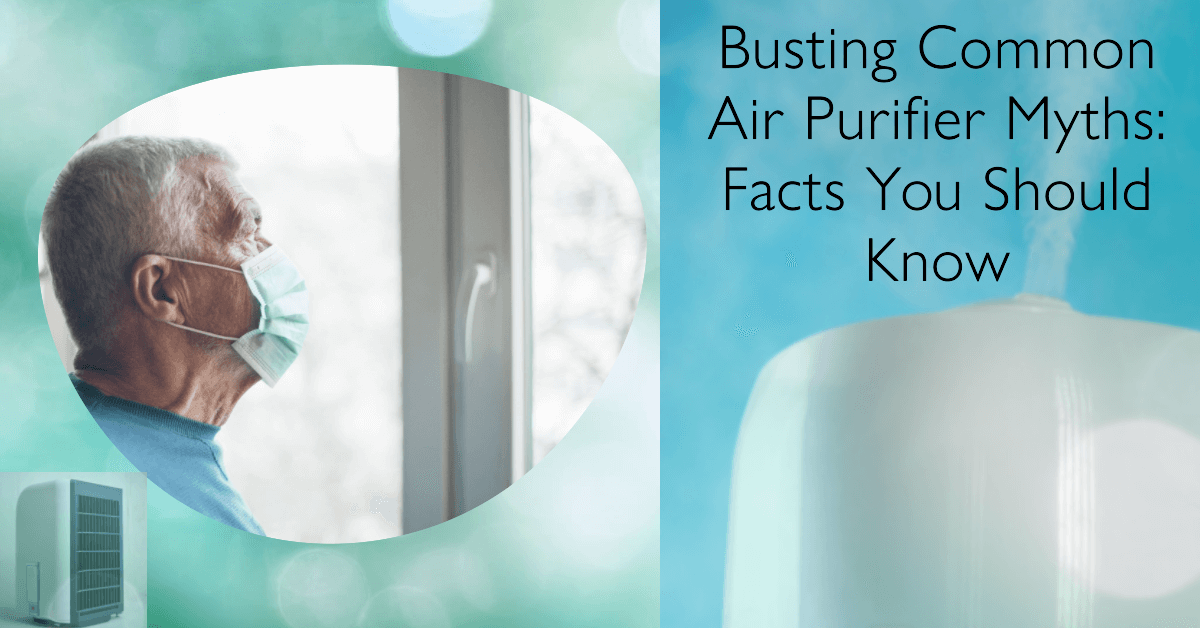Air Purifier Myths are common misunderstandings about air purifiers that might confuse you. We’re here to help clear things up. People are searching for cleaner and healthier surroundings. This search has brought attention to technologies like air purifiers, These devices promise to remove pollutants and allergens from the air. But as with new tech, there are myths around air purifiers. This article will debunk these myths, giving you air purifier facts. We want to help you make well-informed choices about air purifiers and their benefits.
Air Purifiers are Effective Against All Pollutants
The Myth
It’s a common misunderstanding that air purifiers are a one-size-fits-all solution for air pollution. It’s important to choose the right purifier for the specific issue you want to tackle.
The Reality
Air purifiers do work well at getting rid of pollutants, but their success depends on the filter they use and the size of the particles they can catch. The truth is, different purifiers are designed for different types of pollutants. HEPA filters are really efficient at capturing tiny particles, even as small as 0.3 microns, which includes lots of allergens. But they might not be as good at getting rid of gases and smells. To deal with specific problems, you need to pick an air purifier with the right filter. For example, if you want to tackle odors, you’d need one with activated carbon filters or specific filters for volatile organic compounds (VOCs).
VOC air purifiers target volatile organic compounds like formaldehyde and benzene. Meanwhile, smoke air purifiers specialize in removing smoke particles and odors. Be cautious with ozone from air purifiers, as some generate ozone as part of their process. For a focus on allergens, consider an air purifier for volatile organic compounds and other common triggers like PM 2.5 air purifiers. Ensure the best air purifier for VOCs and formaldehyde if these are your concerns.
Additionally, for overall air quality improvement, explore air quality purifiers that effectively address various pollutants, including those that remove VOCs. Look for models with dedicated air filter VOC options, and remember to address specific needs like outdoor air with an air purifier for outdoor use.
Air Purifiers Remove Oxygen from the Air
The Myth
There are common Air Purifier Myths that says they take away oxygen from the air, which could make the air quality worse and be harmful to our health.
The Reality
Air purifiers don’t take away oxygen from the air. This is one of the air purifier facts. Their main job is to clean the air by capturing particles and pollutants. The oxygen and other gases in the air stay the same. So, there’s no need to worry about oxygen levels when using an air purifier. It’s all about making the air cleaner and healthier to breathe.
Some air purifiers claim to increase oxygen levels in your environment. These oxygen air purifiers are designed to provide not only cleaner but also more oxygen-rich air. You may also come across terms like oxygen purifier or oxygen purifier for home, indicating their focus on enhancing the oxygen content in the indoor air you breathe.

Air Purifiers are Maintenance-Free
The Myth
Another common misconception is that once they set up an air purifier, they don’t need to do much to keep it working well. They believe it will always clean the air perfectly without any effort indefinitely.
The Reality
Just like other machines, air purifiers need regular care to work their best. Filters should be changed from time to time to keep the purifier working well. Over time, filters get filled up with the particles they catch, and this can make them less effective at catching new ones. It’s important to clean or replace filters as recommended by the manufacturer to make sure the air purifier keeps doing its job properly.
Regular air purifier maintenance involves filter replacement and occasional unit cleaning. Some units are specifically labeled as low maintenance air purifiers, indicating that they need less frequent care. However, it’s important to note that no air purifier maintenance-free. You’ll encounter variations in air purifier maintenance cost depending on the model and filter type. It’s essential to budget for these costs.
While some models may be cheapest air purifiers to maintain, remember that the initial purchase price doesn’t always reflect the long-term expenses. Therefore, consider both upfront and ongoing costs when evaluating if air purifiers are expensive to run.
Air Purifiers Negate the Need for Ventilation
The Myth
Some individuals mistakenly think that having an air purifier eliminates the need for proper ventilation in indoor spaces. They believe the purifier can take care of everything.
The Reality
Air purifiers and ventilation have distinct roles, and they can’t substitute each other completely. Ventilation is important because it brings in fresh outdoor air, which helps reduce indoor pollutants and maintains oxygen levels. While air purifiers are great at removing airborne particles, they can’t replace the need for proper ventilation. Using both air purifiers and ventilation together is usually the best way to ensure healthy indoor air quality.
Ventilation air purifiers are designed to work alongside your HVAC system to distribute clean, filtered air throughout your home. They complement the natural flow of outdoor air into your living spaces, ensuring a continuous supply of fresh, oxygen-rich air. These systems help reduce indoor pollutants and maintain a healthy indoor environment.
Similarly, air vent purifiers or exhaust fan air purifiers are not substitutes for ventilation. They are specialized purifiers that can be installed in specific areas, such as kitchens or bathrooms, where odors and pollutants tend to accumulate. These purifiers enhance air quality locally in these spaces but do not replace the need for overall ventilation in your home.
Air Purifiers Can Completely Eliminate Allergens and Germs
The Myth
Some people think that air purifiers will create a completely germ-free and allergen-free space. However, it’s not possible to achieve a completely sterile environment with just an air purifier.
The Reality
Air purifiers are effective at decreasing the amount of allergens and germs in the air, but they can’t make an area completely germ and allergen-free. It’s important to recognize that air purifiers work alongside proper cleaning and hygiene habits to create a healthier indoor environment. Air purifiers should be seen as a complement to good hygiene practices rather than a replacement for them.
When it comes to addressing allergies, air purifiers equipped with high-efficiency particulate air (HEPA) filters are your best bet. These filters capture tiny allergenic particles like pollen, dust mites, pet dander, and mold spores. By reducing the allergen load in the air, they can significantly alleviate allergy symptoms. So, for air purifiers and allergies, look for models with HEPA filters.
For targeting germs and airborne pathogens, including bacteria and viruses, specialized germ air purifiers or air purifier for germs can be beneficial. These purifiers often employ technologies like ultraviolet (UV) germicidal irradiation or photocatalytic oxidation to neutralize microorganisms. While they can help improve indoor air quality, it’s important to note that they may not completely eliminate all germs, and proper hygiene practices are still essential.
An air germ purifier is a versatile option that can effectively tackle both allergens and germs, making it a comprehensive choice for those concerned about indoor air quality.

Air Purifiers and Ozone Generation
The Myth
It’s a common Air Purifier Myth that all air purifiers, including those that produce ozone, are both safe and effective. Some people think that ozone-producing purifiers add an extra layer of cleanliness by releasing ozone into the air.
The Reality
Ozone and air purifiers are a topic of discussion in the world of indoor air quality. Ozone is good in the upper atmosphere as the ozone layer. But at ground level, it can be bad for our health. Some machines intentionally make ozone, called ozone generators, and these can make indoor air dirty and cause health problems. High levels of ozone can irritate the respiratory system and make asthma worse. Good air purifiers don’t make ozone and it’s best consumers should avoid ozone-generating models to ensure their health and safety.
Some air purifiers are designed to produce ozone as part of their air cleaning process. These are known as ozone air purifiers or ozone air cleaners. Ozone can be effective at neutralizing certain odors and pollutants in the air. However, it’s important to use such purifiers with caution and follow manufacturer guidelines, as excessive ozone exposure can be harmful to your health, especially if you have respiratory sensitivities.
An ozone air filter may also be part of certain air purifiers, and it plays a role in removing specific pollutants and odors. Similarly, ozone cleaners are devices that use ozone to sanitize the air and surfaces in a room.
An ozone air purification system often includes various components to ensure effective purification, and it’s crucial to choose these systems carefully, considering your specific needs and the potential health impact of ozone exposure.
For those who are concerned about ozone air filtration, it’s essential to be well-informed about the type and amount of ozone produced by your air purifier and to use it appropriately in well-ventilated spaces.
If you decide to use an air purifier for ozone or an air purifier ozone machine, make sure it meets safety standards and guidelines to avoid any adverse health effects.
Air Purifiers and Sound Levels
The Myth
Some individuals assume that all air purifiers are noisy and disruptive, making them unsuitable for use in bedrooms or quiet spaces.
The Reality
Air purifiers can be quiet or produce some noise, depending on their features. Some people worry that air purifiers might be too noisy for places like bedrooms. However, many modern air purifiers are designed to work quietly, so they won’t bother you when you’re trying to sleep or focus. Allowing them to be used in bedrooms, offices and other quiet environments. It’s a good idea to check the noise levels mentioned in the product details before choosing an air purifier, especially if you plan to use it in a quiet space.
When considering air purifiers, it’s essential to find one that matches your noise tolerance. Most Quiet air purifiers are designed to operate with minimal disturbance, making them perfect for bedrooms or quiet workspaces. If you’re more sensitive to noise, consider the most silent air purifier available, ensuring a peaceful environment for activities like sleeping or reading. These quiet air cleaners prioritize effective air purification while keeping noise levels low.
Air Purifiers and Energy Efficiency
The Myth
Another Air Purifier Myth is they are energy guzzlers, consuming excessive electricity and significantly increasing utility bills.
The Reality
Many people care about energy efficiency. Many air purifiers are designed to be energy-efficient. Some models even come with energy-saving modes or sensors that change the fan speed to use less power when the air is already clean. This helps you use less energy while still keeping your air clean.
Selecting an energy-efficient air purifier is not only environmentally friendly but can also save you money. Look for models with energy-efficient air filters that maximize air purification while minimizing power consumption. Energy Star rated air purifiers are certified for their energy-efficient operation and are a great choice if you’re concerned about energy usage.
An energy-saving air purifier uses advanced technologies to reduce power usage without compromising air cleaning performance. The best options are energy star air purifier filters, which are optimized for energy efficiency. Invest in the best energy star air purifier for long-term energy savings and environmentally conscious air purification. These energy-efficient air purifiers are designed to use minimal power while delivering excellent air purification results, helping reduce your carbon footprint and electricity bills.
Air Purifiers and Allergies
The Myth
Some individuals believe that owning an air purifier means they don’t need other allergy management strategies, such as cleaning and avoiding allergen sources.
The Reality
Air purifiers can certainly help manage indoor allergens like pollen, dust mites and pet dander. But remember, they work even better when used alongside other allergy-fighting methods. Regular cleaning, vacuuming and minimizing exposure to allergen sources remain essential strategies for allergy management. Air purifiers can help by reducing allergens in the air, which can be a big help if you have allergies.
Air Purifiers and Room Coverage
The Myth
A common misunderstanding is that all air purifiers are capable of cleaning the air in large rooms or even entire houses.
The Reality
Air purifiers come in various sizes and with different levels of air purification capacity. The effectiveness of an air purifier is linked to its Clean Air Delivery Rate (CADR) and the size of the room. It’s important to choose an air purifier with an appropriate CADR rating for the room size you intend to use it in. Using an undersized air purifier in a large room will result in reduced effectiveness, as the device may not be able to clean the air efficiently.
The effectiveness of an air purifier is closely related to the size of the space it can cover. Manufacturers often specify the room coverage of air purifiers. When choosing an air purifier, consider whether it’s suitable for small rooms, medium rooms or large rooms, depending on your needs and the size of the area you intend to use it in.

Air Purifiers and Smell Removal
The Myth
There’s a misconception that air purifiers can instantly eliminate strong odors, such as cigarette smoke or cooking smells, as soon as they are turned on.
The Reality
Air purifiers with activated carbon filters can help lessen smells after a while, but they can’t magically make all smells vanish as soon as you turn them on. Odor reduction depends on how strong the smell is, what kind it is and how good the air purifier is at catching certain compounds that cause smells. If there’s a smell that just won’t go away, it’s smart to figure out where it’s coming from and think about other ways to get rid of it, like making sure there’s enough fresh air or using things to help control the smell.
If you’re dealing with unpleasant odors in your living space, consider air purifiers for smell removal. These purifiers are equipped with filters and technologies designed to effectively eliminate odors, leaving your environment smelling fresher and more pleasant.
Air Purifiers and Pet Allergens
The Myth
There’s a misconception that having an air purifier will get rid of all pet allergens, making it easy to live with pets without any allergy issues.
The Reality
Air purifiers can help a lot by catching pet dander and hair in their filters, which reduces allergens. But it’s not possible to completely get rid of all pet allergens, especially if someone has strong allergies. It’s important to keep taking care of your pets by grooming them and keeping your home clean. Air purifiers can minimize allergen levels, but they can’t replace good pet care and cleanliness.
For those with pet allergies, air purifiers for pet allergies can be used to reduce pet allergens like pet dander, hair and other particles that can trigger allergies.
Air Purifiers and Immediate Health Benefits
The Myth
Some people think that once an air purifier is installed, users should experience immediate improvements in their health and well-being.
The Reality
Using an air purifier doesn’t always mean you’ll see instant changes. The time it takes to notice improvements depends on factors like the initial air quality and your health. Some people might feel better quickly, while others might take more time. Health benefits of air purifiers can include clearer skin, improved respiratory health and better overall well-being Using the air purifier regularly and maintaining good habits will gradually make the air cleaner and your health better. .
Air Purifiers and Long-Term Health Effects
The Myth
There’s a mistaken belief that long-term use of air purifiers can have negative health effects, such as drying out the airways or causing respiratory issues.
The Reality
When used correctly and with appropriate filters, air purifiers are generally safe and can provide health benefits by reducing exposure to indoor air pollutants. However, improper use or using low-quality air purifiers could potentially lead to negative effects. It’s essential to follow manufacturer guidelines, choose reputable brands and maintain the device regularly to ensure safe and effective operation. If you have specific health concerns or conditions, consulting a healthcare professional before using an air purifier is advisable.
Air Purifiers and Cost Effectiveness
The Myth
A prevalent misconception is that air purifiers are expensive investments that require substantial financial commitment.
The Reality
Air purifier prices can range significantly due to factors like the brand, features and room coverage. While advanced models can be expensive, there are budget-friendly choices that work well too. When thinking about the cost, remember to think about the health benefits and better air quality it can offer. Also, consider ongoing expenses like filter replacements and energy consumption to understand the overall financial impact over time.
By clearing up these Air Purifier Myths and knowing the truth about air purifiers, you can make smart choices about using them in your home. Keep in mind that while air purifiers are helpful, they work best when combined with other good habits and ways to keep clean and comfortable indoor environment.

Frequently Asked Questions (FAQ’s) on Air Purifier Myths
Can air purifiers replace the need for opening windows for fresh air?
No, air purifiers cannot fully replace the need for proper ventilation. While they can help reduce indoor pollutants, opening windows to allow fresh outdoor air is still essential for maintaining a healthy indoor environment.
How often should I replace the filters in my air purifier?
The frequency of filter replacement depends on the type of purifier and the manufacturer’s recommendations. Generally, HEPA filters should be replaced every 6 to 12 months, while carbon filters might need replacement every 3 to 6 months.
Can an air purifier eliminate all cooking odors in the kitchen?
Air purifiers equipped with activated carbon filters can help reduce cooking odors, but complete elimination of strong odors may require additional ventilation and odor-control strategies in the kitchen.
Do air purifiers consume a lot of electricity?
Air purifiers vary in energy consumption based on their size and features. Many modern models are designed to be energy-efficient and consume a reasonable amount of electricity, similar to other household appliances.
Can an air purifier prevent the spread of airborne diseases?
While air purifiers can help reduce the concentration of airborne germs, they are not foolproof measures against the spread of diseases. Regular handwashing, proper hygiene and vaccination remain important practices for preventing the transmission of illness.
How do I know if my air purifier filter is dirty?
A dirty filter may show visible dust buildup. You can also tell if it’s time to clean or replace the filter when you notice a decline in the air purifier’s ability to remove particles and odors from the air.
Do I need to clean my air purifier filter?
Yes, regular filter maintenance is crucial. A clean filter ensures your air purifier continues to effectively remove allergens, pollutants and odors from your indoor air.
What happens if you don’t clean your air purifier filter?
Neglecting to clean or replace a dirty filter can lead to reduced air purification efficiency. This means your air purifier won’t be as effective at removing harmful particles from the air, potentially affecting your indoor air quality.
How to replace an air purifier filter?
To replace an air purifier filter, consult your air purifier’s user manual. It typically involves opening the unit, removing the old filter and inserting a new one following the manufacturer’s instructions.
Do air purifiers negate the need for ventilation?
Air purifiers do not replace the need for proper ventilation. Ventilation brings fresh outdoor air into your home, while air purifiers improve indoor air quality by removing pollutants. Using them together ensures a healthier indoor environment.
How to use air purifiers and ventilation together?
To maximize air quality, run your air purifier alongside good ventilation practices. Ensure windows and doors are occasionally opened to allow fresh outdoor air to circulate.
Do air purifiers generate ozone?
Some air purifiers produce ozone as part of their air-cleaning process. To avoid ozone exposure, choose models labeled as “ozone-free.”
How to choose an ozone-free air purifier?
Look for air purifiers specifically labeled as “ozone-free” or carefully read product specifications to ensure they do not emit ozone.
How to choose an air purifier for allergies?
Go for air purifiers with HEPA filters, as they effectively capture allergens like pollen, dust mites and pet dander, providing relief from allergy symptoms.
How to choose an air purifier for the right room size?
Match the Clean Air Delivery Rate (CADR) of the air purifier to your room’s square footage to ensure it can effectively filter the air in that space.
How to choose an air purifier for smell removal?
Select air purifiers equipped with activated carbon filters to efficiently eliminate odors, including cooking smells and pet odors.
How to choose an air purifier for pet allergies?
Look for air purifiers designed to target pet allergies, featuring HEPA filters and specialized features for effective allergen and odor removal.
How air purifiers improve air quality?
Air purifiers filter out particles, allergens, and pollutants from the air, resulting in cleaner indoor air and improved overall air quality.
How air purifiers reduce the risk of respiratory diseases?
By removing airborne pollutants, air purifiers can help reduce the risk of respiratory illnesses, making it easier to breathe clean and healthy air.
How air purifiers reduce the risk of allergies?
Air purifiers can lower allergen levels in your home, reducing allergy symptoms and the likelihood of allergic reactions, especially in individuals with sensitivities.
How air purifiers improve sleep quality?
Cleaner indoor air provided by air purifiers can lead to better sleep quality by reducing irritants and allergens that may disrupt sleep patterns.
How air purifiers improve overall health and well-being?
Improved indoor air quality with air purifiers positively impacts health and well-being by reducing exposure to pollutants, allergens and odors, promoting a healthier living environment.
DheerajSonwane is a dedicated writer with expertise in air purification technologies. He focuses on providing well-researched content to help readers improve indoor air quality in homes and businesses. As the lead writer at AirPurifierMaster.com, Dheeraj offers practical advice his insightful reviews guide individuals in choosing the best air purifiers for their needs.


1 thought on “Busting Common Air Purifier Myths: Facts You Should Know”